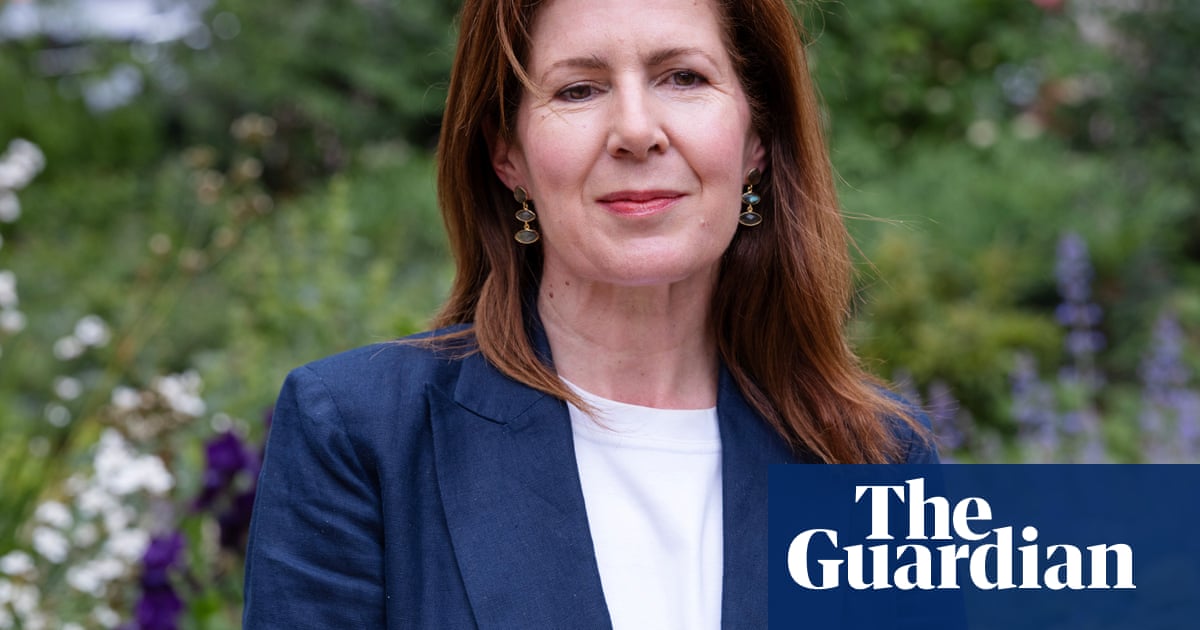The UK’s drastically diminished aid budget is the “new normal,” the development minister, Jenny Chapman, has said, as she claimed Labour’s approach would help repair voters’ faith in overseas aid.
Lady Chapman took up her post in February, afterAnneliese Dodds resignedin protest at Keir Starmer’s decision toslash overseas aid spendingto 0.3% of gross national income from 0.5%, to pay for increased defence spending.
Chapman said as she and her team go through the aid budget line by line, seeking deep cuts, they were not treating the belt-tightening as temporary.
“I’m not making my choices, thinking, ‘Oh, we’ve got to get through the next 18 months, two years and then we’ll be back to where we were’. I’m making decisions thinking that this is the new normal and we have to make this work,” she said, repeatedly referring to what she called a “0.3 world”.
Chapman was the MP for Darlington from 2010 until 2019, when she lost her seat in Boris Johnson’s landslide general election victory. She was ennobled by Starmer in 2021.
Speaking in her spacious room in the Foreign Office, she acknowledged the dismay among many longtime supporters of development over the scale of Labour’s cuts, but claimed the sector needed to work differently to win back wavering public support.
“I think the aid sector does amazing work and there are incredible people who’ve spent their lives working to make the world a better place,” she said.
“At the same time, the truth is that the confidence that the public once had in this agenda has faded, and we need to be honest with ourselves about that. And I will work with them to improve that situation.”
“I’m not going to shy away from tough messages when I think they need to be made.”
Before the 20-year anniversary of theGleneagles G8 summit, at which the UK secured significant progress on aid and debt relief, Chapman claimed Labour can still lead on these issues.
“I’m very proud that the last Labour government led thinking around development. We have to do the same now and we have to shape what development looks like for the next 20 years. That is the job.”
Chapman attracted criticism earlier in the week for suggesting in an appearance at the cross-party international development committee that the UK had for too long been viewed as a “global charity”.
But speaking after her grilling by the committee, she insisted that even without the necessity of making cuts, the way the government works with developing countries needed significant reform.
“African governments are saying they want partnership, not paternalism. So they want more control over what happens in their country,” she said.
Chapman suggested the UK’s new approach, within straitened resources, would involve sharing UK expertise and encouraging private sector investment. “This morning I was in the City with our new investment taskforce,” she said, citing “lots of enthusiasm, lots of possibilities.”
Sign up toHeadlines UK
Get the day’s headlines and highlights emailed direct to you every morning
after newsletter promotion
She also underlined the urgency of cutting the cost of supporting asylum seekers in the UK, which accounted for 20% of the overseas aid budget in 2024.
Chapman is part of a joint working group with the Home Office aiming to reduce the budget in this area. “They need to move further and faster because that’s not good use of that money. They would agree with that,” she said.
Asked where the cuts will fall, Chapman refused to make any specific budget commitments, but said the UK would prioritise humanitarian aid. She also hinted at other areas the government might focus on, including the World Bank’s International Development Association (IDA) arm, which gives grants and loans to low-income countries, and the Global Alliance for Vaccines and Immunisation (Gavi).
“Money that’s spent by the World Bank, you get £10 invested for every £1 that we put in. That’s a good use of money. The IDA fund performs very well, it’s got proven evidence based of having an impact,” she said.
“We are one of the biggest, if not the biggest donors to Gavi; it works, it’s saved hundreds of thousands, millions of lives.”
The UKcommitted £1.98bn over three yearsto IDA at the end of 2024, before the budget cuts were announced, but it has since been suggested that promise is “under review”. Gavi has a pledging conference at which the UK will be expected to set out its contribution.
Chapman also praised the BBC World Service, amid reports that the government isdemanding budget cuts.
“We don’t know what the exact allocations are going to be yet. We’re working through those numbers, but what I would say is that the World Service do tremendous work that nobody else can do,” she said, calling it “an absolute gold standard resource”.
